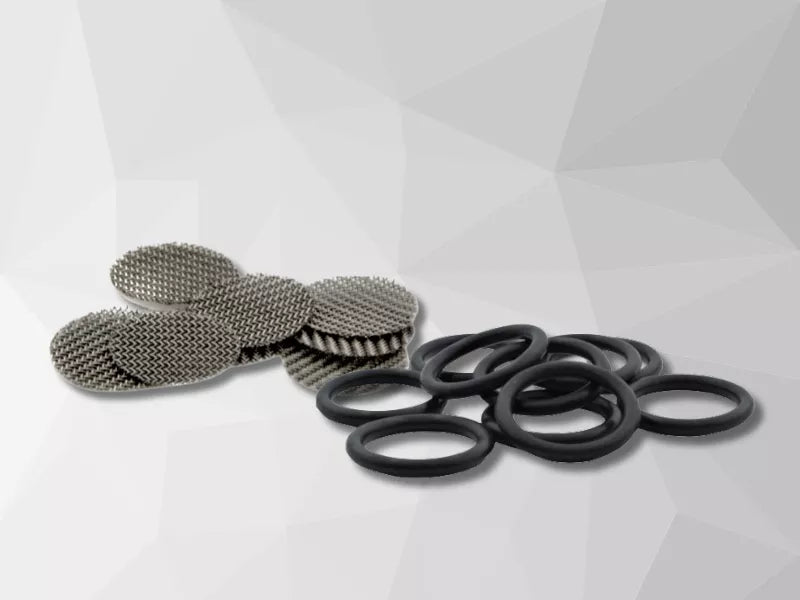Filters and O-rings: when and why should they be replaced?
Introduction
Measuring instruments are high-precision tools that require regular maintenance to ensure optimum performance and a long service life. Your HORIBA instrument, which is a fundamental part of your laboratory and indispensable to your research and analysis, needs to be carefully maintained. Consumables such as filters, gaskets and cells play a key role in keeping your instruments running smoothly. However, their replacement is often neglected, which can lead to malfunctions and premature breakdowns.
In this article, we'll look at why it's essential to replace these consumables at the right time, and how preventive maintenance contributes to the reliability and durability of your HORIBA instruments.
Filters: protect your instrument and guarantee analysis quality
Filters are indispensable in many measuring instruments, especially those used to analyze gases, liquids or suspended particles. Their main role is to protect the instrument's internal components by retaining impurities likely to alter measurements or damage sensors.
Why replace a filter?
- A clogged filter can lead to loss of sensitivity and altered analysis results.
- Excessive clogging can lead to obstruction, disrupting proper operation.
- Unfiltered contaminants can damage important components, increasing maintenance costs.
When to replace a filter?
- When you notice a decline in performance.
- After analysis of samples with particularly high levels of impurities.
- Depending on your instrument and how often it is used, filter life may vary, so we recommend that you contact your service engineers to carry out checks during preventive maintenance visits.
Gaskets: prevent leaks and ensure a tight seal
O-rings play a crucial role in maintaining a tight seal on measuring instruments, to prevent the escape of liquids or gases. However, these rubber or silicone components can deteriorate over time due to temperature fluctuations, exposure to chemicals, or mechanical wear.
Why replace an O-ring?
- A worn or cracked seal can lead to leakage, which compromises the integrity of the analysis.
- Poor sealing can contaminate samples and affect the reliability of results.
· Gas or liquid leaks can damage other instrument components and increase repair costs.
When to replace a gasket?
- We recommend that you change your seals every year.
- During preventive maintenance, your service engineer may recommend that you replace a gasket. It is therefore important to replace a gasket before a leak is detected in your HORIBA instrument.
- However, if a leak is detected, or if visible signs of deterioration, such as cracking or deformation, are present, the seal should be replaced.
- In cases of frequent exposure to corrosive substances or extreme temperatures.
The importance of preventive maintenance
Replacing these consumables at regular intervals helps optimize the performance of your HORIBA instruments and avoid costly breakdowns. Well-planned preventive maintenance includes:
- Strictly following the recommendations of our service engineers to avoid premature degradation of your system.
- Regular performance checks to detect early signs of malfunction.
- A supply of original spare parts and consumables to guarantee the compatibility and quality of replacements.
Conclusion
Replacing filters and O-rings is essential to ensuring the longevity and reliability of your measuring instruments. Taking a proactive approach to maintenance guarantees accurate analyses, minimizes downtime, and reduces long-term repair costs.
Don't let wear and tear on these small components compromise the quality of your measurements! Check their condition regularly and replace them as soon as necessary to ensure optimal operation of your HORIBA instruments!

